I bought this plate at a French flea market. When I looked for information about it, I only became more confused. Several plots are similar in all details, but drawn by other artists. The same applies to the markings on the back of the plate. I found similar ones, but not exactly the same. I also found information that the Metropolitan Museum of Art May released a series “12 months”, which also contains an analogue of the plot of my plate (MMA Delft 1ère édition HOLLAND). This gave me a reason to look for information here.
Vraag
I would appreciate any information about the time and place of production
Afmetingen
25cm
Collectie
publiekscollectie

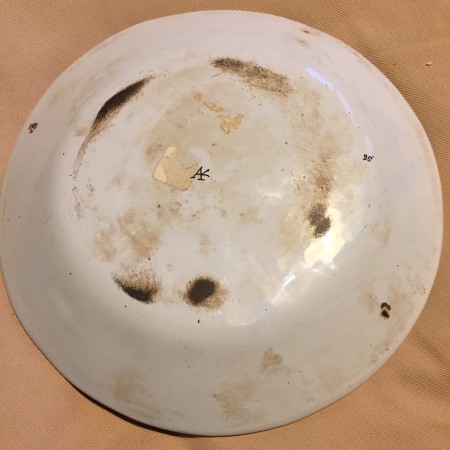
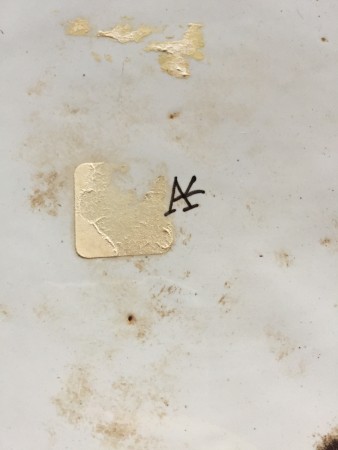
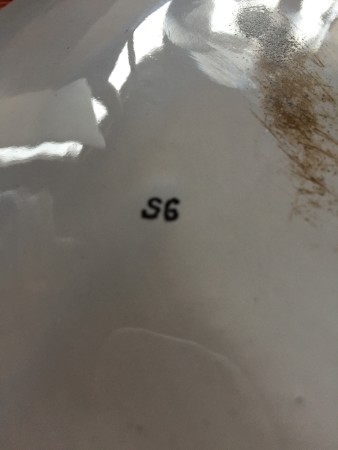
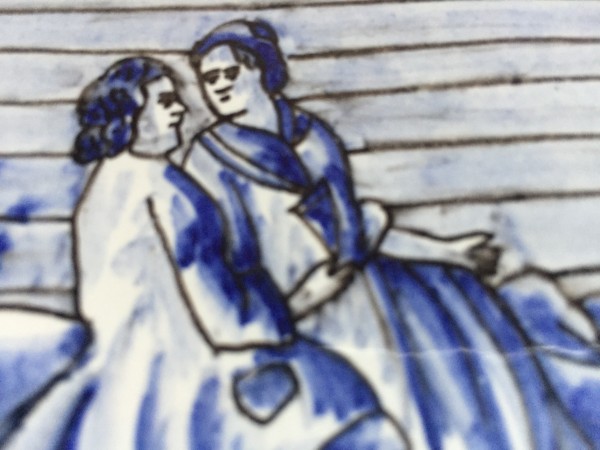
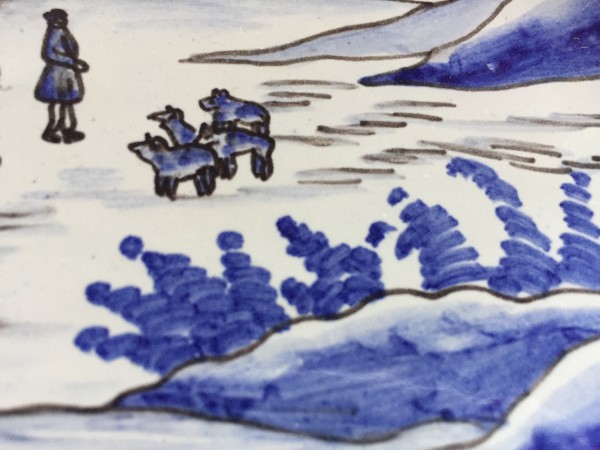










Reacties 3
Dear Tatiana,
As you already discovered there's a set of 12 of these plates made by the Porceleyne Byl factory in the late 18th century and these can be found in various museums around the world. Please see: https://www.aronson.com/object/d2062-set-of-twelve-months-plates/
However your plate is not an original unfortunately, and is in fact a much later copy with a fake mark from Adrianus Kocx from the Greek A factory: https://delftsaardewerk.nl/merk/ak
This is one of the most common fake marks we see on imitations and these were often made in France in the late 19th century. The S6 could maybe indicate that it might have its origins at Samson, but I am not sure about that: https://www.aronson.com/nineteenth-century-delft-by-samson/
A few giveaways that you can instantly tell this is an imitation are the deep dark blue colours and the poor drawing. If you compare it to an original you can see the difference in quality is huge.
Kind regards, Patrick
In reply to Dear Tatiana, As you… by PatrickW493
Dear Patrick,
Thank you very much for such a detailed answer. I certainly see the difference in the example, and, of course, I could not even hope that this plate is as old as the old mark on it. But In our times, it is difficult to imagine that to create a fake, people spent so much time and effort and drew with their hands, even if worse than the original, but they tried. I'm sorry for wasting your time for this fake stuff.
Since I bought this plate simply because it's cute and I'm not a collector or dealer, I will be happy to serve some cakes to my guests on it. Especially now that I know that this is an attempt to repeat the famous Delft.
Thank you again for your prompt and detailed response. I've learned a lot
Have a nice day
Verdict:
Analysis:
Dear Tatiana,
PatrickW already explained the details of this plate, for which my thanks. I agree that the mark S6/SS is similar to marks on Samsonwares, but I can't give certainty. Maybe another user with more knowledge on Samson.
Add new comment
Only logged in users can post comments
Log in or register to post comments